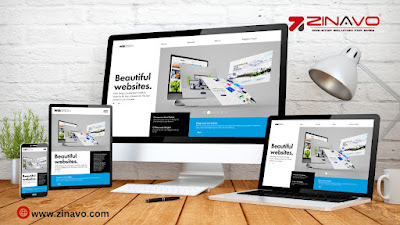Choosing the Right CMS or Framework for Your Web Application
Introduction:
Building a web application is no longer a luxury. It's a necessity for businesses that want to stay competitive, agile and accessible in the digital age. It's critical to decide which technology to use for your project: a CMS or a custom web framework? An eCommerce store, customer portal, content platform or custom SaaS solution depends largely on this decision.
This decision affects everything from your project timeline, scalability and security to how easily your team can manage content or expand the platform in the future. Making the right choice can be a challenge, especially if you're unsure how each technology aligns with your business goals. There are dozens of CMS platforms out there, such as WordPress, Drupal and Shopify and powerful frameworks such as Laravel, Django and React.
In this blog, we’ll discuss the key differences between CMS and frameworks. We'll compare their advantages and limitations and help you determine which approach is best suited to your web application.

What’s the Difference Between CMS and Web Frameworks?
A CMS (Content Management System) is pre-built software that enables users to manage digital content easily, often without writing any code. Examples include WordPress, Drupal and Joomla. They are ideal for content-heavy websites like blogs or company pages. On the other hand, a web framework is a development platform used by developers to build applications from scratch. Frameworks like Laravel, Django and React provide increased flexibility and allow for the creation of customized, scalable web applications customized to specific business logic and user needs.
Business Objectives
The purpose of your web application greatly influences your choice. If your primary goal is to display content like articles, images or videos, a CMS may be the fastest and most efficient option. Web frameworks are ideal for business applications that require custom workflows, user dashboards or integrations with third-party tools. Aligning technology with your goals ensures long-term efficiency and growth.
Start by identifying the primary function of your web application:
Do you need a blog, a portfolio or a content-rich website? → CMS like WordPress may work.
Need an interactive dashboard, SaaS app or custom feature? → A framework is ideal.
Scalability
Scalability refers to how well your application grows as your business expands. Modern CMS platforms can handle solid amounts of traffic and content, but may struggle when dealing with complex user interactions or data-heavy operations. The platform is instead designed for scalability. Developers can optimize performance, distribute server loads and ensure your application works smoothly even when thousands of users access it the same time.
Speed of Development
CMS platforms enable quicker deployment if time is of the essence. Choosing a theme, installing plugins and going live is easy. Several steps are involved in the framework development process, including planning, designing, coding, and testing. This takes more time at the start, but results in a product designed to your needs. Speed and long-term control are traded off. An experienced team can still guide startups needing a fast MVP with frameworks like Laravel or Django.
CMS: Suitable for rapid deployment. A website can be launched within days if you use themes and plugins.
Frameworks: Require more time upfront but allow long-term flexibility and customization.
Customization & Flexibility
The platforms offer plugins and themes, but these can limit creativity and functionality. It is possible that you will have difficulty modifying features beyond those provided by the CMS. A web framework, on the other hand, allows for unlimited customization. Developers can use these frameworks to create solutions exactly how they envision them. The process may involve external APIs, adding unique user roles, or implementing custom logic. Flexibility is critical for businesses with unique requirements.
Security
The importance of security cannot be overstated. CMS platforms are popular targets for hackers because of outdated plugins or common security flaws. While they can be protected, it requires regular updates and monitoring. Frameworks allow developers to build with security in mind, implementing strong authentication, data security and secure APIs. If your web app handles sensitive user data or financial transactions, a framework-based approach offers a more secure foundation.
CMS platforms are more vulnerable to attacks due to plugins and outdated components.
Frameworks give developers better control over security, implementation and data handling.
Team Expertise
Choosing the right team depends heavily on the skill level of your members. CMSs like WordPress are easier to manage if you don't have access to developers or technical staff. The benefits of using a framework are more evident if you have in-house developers or work with an agency. Based on your current resources as well as the level of control and customization you anticipate, you should make your decision.
If your team lacks technical coding experience, a CMS is more manageable.
If you have access to developers or plan to hire a web application development agency, a framework might be the better choice.
Budget
Budgets often guide technical decisions. CMS platforms usually come with lower initial costs, especially when using free themes and plugins. Customizing a CMS too much in the long run can be inefficient and expensive. Framework-based applications might cost more upfront due to their design and development time, but they offer higher ROI due to their performance, flexibility and lower maintenance requirements.
CMS platforms often come with lower upfront costs, especially open-source options.
Framework-based applications may have higher initial development costs, but they pay off in flexibility and scalability over time.
Popular CMS Platforms to Consider
Some leading CMS platforms include WordPress, known for its ease of use and plugin availability Drupal, which offers robust features for complex sites and Shopify, designed for eCommerce businesses. These systems are ideal for blogs, informational websites or online stores where content management is the primary need.
Leading Web Frameworks for Custom Applications
Popular frameworks include Laravel (PHP) for robust backend development, Django (Python) for secure and scalable apps, React/Next.js (JavaScript) for dynamic user interfaces and Ruby on Rails for rapid prototyping. Each of these frameworks offers performance, scalability and flexibility, especially when your app requires advanced features and integrations.
When to Choose a CMS
A CMS is the right choice when your application is content-focused, you need quick launch or minimal technical support. It’s suitable for blogs, company profiles or eCommerce stores that don't need complex workflows or deep customization.
When to Choose a Web Framework
Choose a web framework when your application demands full control, complex features and high security. Frameworks are ideal for SaaS products, customer portals, ERPs and other applications where performance and customization are critical to success.
Conclusion
The decision between a content management system and a framework is not only a technical one, it's a strategic one that affects the way your web application performs, grows and serves its users. When you are planning to build a custom, high-performance application with long-term value, a framework may be the best choice. If you are looking for a simple, fast, content-driven solution, a CMS might be the best choice.
Zinavo helps businesses navigate this decision by analyzing your needs, budget and growth plans. Whether you need a custom-built web app or a powerful CMS-based solution, our team delivers scalable, secure and performance-driven results. Are you having difficulty choosing the right CMS or framework for your web application? Contact Zinavo, your leading web development partner.
For More Information:-
Call: +91 8035694395
Whatsapp us: +91-7760245945
Mail: info@zinavo.com
Website: www.zinavo.com



Comments
Post a Comment